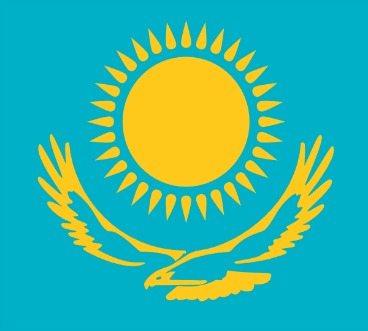Mr. Speaker, I rise to voice concern about attempts underway in Kazakhstan to limit freedom of religion. Currently, several drafts of amendments to that country’s 1992 law on religion are under consideration. In the view of the Keston News Service, one of the world’s most respected organizations on religious liberty, the passage and implementation of these amendments would move Kazakhstan into the ranks of former Soviet republics with the “harshest climate for religious freedom.” Draft amendments to the religion law have surfaced in October 2000, as well as in January and February of this year. Oddly, they lack any indication of origin, which allows government officials to decline to comment on them. It seems clear, however, that the drafts in January and February did not include some of the most onerous and egregious earlier provisions, perhaps in response to criticism.
Nevertheless, what remains is more than enough to evoke serious concern. For example, Amendment 5 of the January and February drafts prohibits “the activity of religious sects in the Republic of Kazakhstan.” Amendment 16 bans “the preparation, preservation and distribution of literature, cine-photo- and video-products and other materials containing ideas of religious extremism and reactionary fundamentalism.” Amendment 11 of the February version introduces the provision that the charter of all religious organizations “is subject to registration.” Furthermore, Amendment 6 of the February draft would permit citizens of Kazakhstan, “foreign citizens and persons without citizenship” to conduct missionary activity in Kazakhstan “only with the permission of the competent state organ.” The drafts also introduce harsh penalties for conducting missionary activity without permission. January’s version stipulates fines ranging between two and five month’s wages, or up to one year corrective labor, or up to two months in jail. The February draft strengthens these draconian provisions: those convicted could be sentenced to two years of corrective labor, up to six months arrest, or deprivation of freedom for up to one year. Amendment 10 of the February draft would give the state enormous power over religious practice by the people of Kazakhastan–the activity of foreign religious organizations on the territory of Kazakhstan, “as well as the appointment of leaders of religious organizations in the Republic by foreign religious centers must take place with the agreement of the corresponding state organs.”
Moreover, Amendment 11 requires Islamic religious groups to “present a document confirming their affiliation with the Spiritual Directorate of Muslims of Kazakhstan.” To quote Keston News Service, “Any requirement that registration be made compulsory would violate Kazakhstan’s international human rights commitments, as would a ban on missionary activity and a requirement for state involvement in the selection of leaders for any religious group.”
Because these drafts have been “unofficial,” even local representatives of the Organization for Security and Cooperation in Europe (OSCE) in Almaty have been unable to obtain any official texts. Nevertheless, on March 6, the head of OSCE center, Herbert Salber, communicated his concerns to the chairman of Kazakhstan’s Senate (the upper chamber) of parliament. Mr. Salber described the drafts as having “masses of shortcomings” and running “counter to international legal norms.”
Mr. Speaker, if these draft amendments to the religion law are passed, the effect could be to make only Islam and Russian Orthodoxy the permitted religions in Kazakhstan. Other faiths and religious organizations would be severely restricted if not actually outlawed. It appears that attempts are being made to pass this legislation on March 16, 2001 without even a public reading. Mr. Speaker, I hope the Bush administration will join me in conveying to the leaders of Kazakhstan that we are deeply concerned by this initiative to turn the clock back and to limit the rights of religious believers in Kazakhstan.






